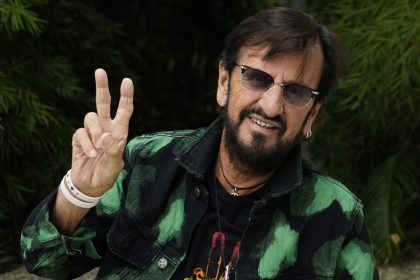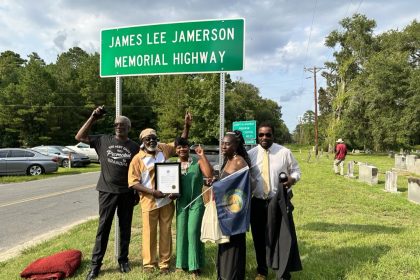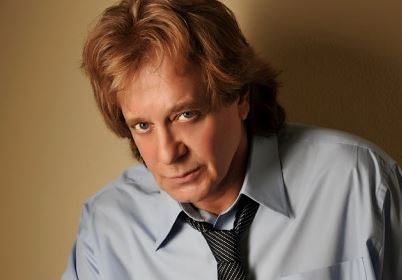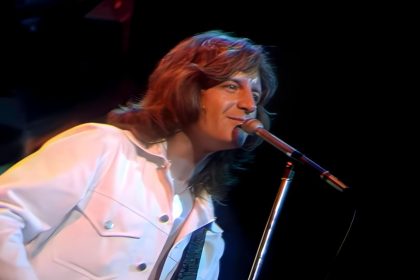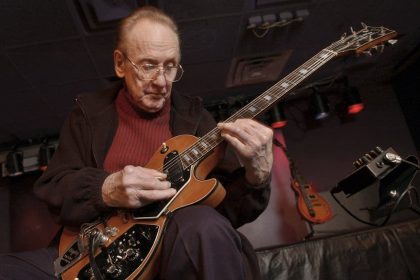Remembering Eddie Money
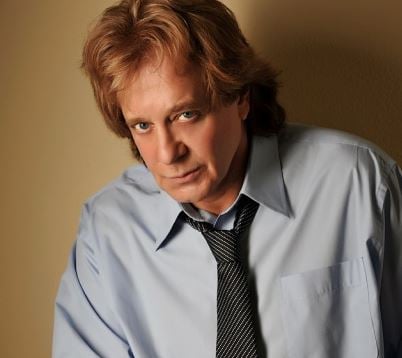
WASHINGTON — Of all the interviews I’ve done over the course of my career — now numbering well into the thousands — only two began with a serenade.
Perhaps it’s inevitable when you have an Irish surname and the first name “Daniel,” that those inclined to burst into song chose “Danny Boy,” which is set to the traditional Irish melody “Londonderry Air.”
Both singers — the disc jockey Wolfman Jack and the rock vocalist Eddie Money — are gone now, but I suspect Money’s version was better. At the very least, his hit closer to home.
Though separated by about a “generation” in school years, Money and I grew up just over a mile apart; with Money, then Edward Joseph Mahoney, growing up in Levittown, New York, and your writer, in neighboring Bethpage.
Our earliest connection, if you will, was a busy commercial thoroughfare called Hempstead Turnpike. It was that four-lane road, dotted with fast-food restaurants, diners, pharmacies, gas stations and department stores, that proved a touchstone for each of us when we got together for the conversation that follows.
Money, who died four years ago this month of esophageal cancer, initially tried to make a joke of his roots — as Long Island wise guys often do — but he quickly warmed to talking about his past.
“We used to say, ‘I live in Levittown, Live-it-down’ you know? But I actually loved growing up on Long Island in the 1960s,” he said.
“I lived in Levittown from the time I was 14 until I was 19, and I used to play a lot of small clubs on Hempstead Turnpike,” Money continued.
“Let’s see, there was Solie’s and PJ’s and Ryans, I played all of those, and this is back in the day when groups like The Vagrants — with the great Leslie West, later of Mountain, on guitar — were always playing somewhere in the area. And the Young Rascals were huge on the island.”
Though he would sing every chance he got, Money’s first band was an Island Trees High School-based combo called the Grapes of Wrath.
The lineup included classmates Eddie Sorensen, Billy Ryan, Gary Horner and John Cappelletti. Money described them “as very big in our day.”
“In fact, we were in a battle of the bands against a group fronted by Billy Joel back in the ’60s,” he said.
“We almost got a deal with CBS Records, but it never happened, and then, 10 years later, I got a deal with CBS anyway,” Money said.
“It’s funny how things happen in life,” he said, adding, “Man, I love Long Island. Best pizza in the world.”
There was a time from the late 1970s, well into the 1980s, when one couldn’t turn on the radio without hearing an Eddie Money song.
Over an 11-year period, starting in 1977, he scored 11 Top 40 hits, including “Baby Hold On,” “Two Tickets to Paradise,” “Shakin’,” “Think I’m In Love,” “Walk on Water,” and of course, “Take Me Home Tonight,” a duet with Ronnie Spector, that became his biggest hit of all in the summer of 1986.
But he was no faded has-been at the time of his death. Though the hits stopped, Money and his band remained a constant on the concert circuit and he transitioned to a successive, if sometimes ironic career in television.
In 2002, for instance, he appeared on an episode of “The King of Queens” playing himself and performing “Shakin’” in the title character’s living room — complete with backing vocals by the comedian Jerry Stiller.
And in 2018, he appeared on the Netflix series “The Kominsky Method,” on which he portrayed a supposed Eddie Money impersonator who was actually the real Eddie Money.
At the time of his passing, he was also starring in, what else, a reality series called “Real Money.” The episode revealing his diagnosis with stage 4 cancer aired the night before he passed away peacefully at home.
When we spoke, Money was promoting “Greatest Hits: Sound of Money,” a 1989 compilation that still serves as a fine introduction to and summation of his hit-making ways.
Born in Brooklyn, New York, on March 21, 1949, Money started playing harmonica sometime before his seventh birthday, and then moved on to piano. But it was sounds emanating from his transistor radio in the early 1960s that held him transfixed and would forever be an influence.
At the time, the top Top 40 stations in New York were WABC, WMCA, and briefly, WINS, home of Murray “the K” Kaufman, who famously dubbed himself “the Fifth Beatle” after John, Paul, George and Ringo landed at the city’s John F. Kennedy Airport and took America by storm.
“I grew up with AM radio,” Money said. “This was long before there was album-oriented rock on FM, and I can remember repeatedly buying transistor radios at the TSS [Department] Store in Levittown.
“They only cost $4 and what would happen is you would get one, then you’d break it, and you’d go out and get another one,” he continued. “But they were absolutely essential. And thanks to that radio, I grew up with beach music, the Drifters, Jay and the Americans, the Four Seasons.
“That’s why, having grown up with these people, being a singles writer was very important to me,” Money said. “I wrote ‘Baby Hold On’ because it reminded me of something Jay and the Americans would do. ‘Maybe I’m a Fool’ from the second album [“Life For The Taking”] was the same way.”
Expanding on the topic further, Money said his emphasis on trying to craft radio-friendly singles was also an acknowledgement that for some people, being about to splurge on records was a luxury.
“The reality is, there are a lot of people who don’t have a lot of money, so I’ve always thought of it as important to provide some way for them to hear my music, whether it be by buying a single rather than an album, or simply by hearing it on the radio,” he said.
“So I’ve never really written a song with the intent of it being a hit single and selling a lot of records for me. It’s just the way I write,” Money said. “It was the way I was brought up. I was a singer in Top 40 bands, where one minute you’d have to do Steve Wonder, the next Creedence Clearwater Revival.”
While all signs from very early on in his life appear to have been pointing him toward a career in music, Money either ignored them or simply didn’t see them right away.
Immediately after graduating from Island Trees High School, he attempted to follow his father and grandfather into law enforcement and spent two years trying to get on the New York City police force.
Money, however, got into frequent hassles with his superiors and never graduated to full officer. He was on the waiting list for the police academy for a time and spent most of his two years “on the force” as a trainee, typing up roll calls.
Unhappy and with few alternatives, Money’s next move was to relocate to the West Coast, specifically, the San Francisco Bay area. It was at this point that stories about Money would paint a picture of a young artist abandoning his family’s more mundane wishes for him, and striking out on his own.
In this telling of the so-called “hero’s journey,” the artist is quickly discovered, and becomes a major star.
The story Money himself told was a bit less Hollywood than that.
“When I first went out to the West Coast, I enrolled at the University of California, Berkeley, as a Political Science major, and I quickly discovered I didn’t have an affinity for it,” Money said.
“It wasn’t that I was flunking out or anything like that, but I was clearly a solid C and B student, and I decided that my marks reflected that this really wasn’t something I wanted to do with the rest of my life.
“The next thing I did was change my major — I became a business major — but again, my marks reflected that I really didn’t have my heart in being a businessman,” he said.
With that, Money dropped out of Berkeley and, hoping to regroup, enrolled in local junior college where, “for the first time in my life, I had decided to take all these music courses.”
“I studied saxophone. I started studying music theory again. I got back into playing the B-3 organ and piano, and it was like, overnight, I became an A student,” he said. “It was right then … I knew I was going to take rock and roll more seriously than I had in the past, when it was all about just playing bars on the weekends.
“At the same time, I also took private voice lessons with a woman named Judy Davis, who over the years had taught people like Frank Sinatra, Barbra Streisand, the Kingston Trio, Marty Balin, Grace Slick and eventually, Steve Perry of Journey.
“She taught me a lot about my voice and how to take care of it,” he said.
It was around this time Money wrote what would eventually be one of his early hits, “Two Tickets to Paradise.”
As he explained: “When I wrote ‘Two Tickets’ I was going with a girl who was the valedictorian from a local high school.
“I had met her after playing a fraternity party, and after she enrolled in college, she joined a big sorority,” he said. “Her parents had a lot of money, and her mother didn’t like her going out with me at all, but I was totally in love with her.
“So what happened was, her mother decided to take advantage of the fact I worked on weekends,” he continued. “My girlfriend would go home on weekends and every time she did, her mother would start working on her, trying to talk her out of going out with me.
“The next thing I knew, every time I turned around, her mother was whisking her off to Hawaii or Seattle or New York, all these places I couldn’t afford to take her. I can’t even describe to you how bad this made me feel and it filled me with this desire to get two tickets for us to go … somewhere … even if it was only two tickets for seats on a greyhound bus to get away into wine country.
“So that was the inspiration for that song. I wrote it because I was in love with her and I wanted to take her someplace with me … and it was only after I started writing it, that I realized how universal a feeling that was … because everybody wants ‘Two Tickets to Paradise.’ Everybody wants to get away,” he said.
Money played the song for his girlfriend when she returned from seeing her mother.
“She wound up breaking up with me anyway, and took up with a guy in law school,” he said.
If he was unlucky in love at this point, he was about to experience a profound change of fortunes in his musical career, which consisted of regular gigs on the Bay Area club circuit.
In 1975, Money and his band, a group called Eddie Money and the New Rockets, signed up to compete in a glorified battle of the bands being put on by rock empresario Bill Graham, the former owner of Fillmore East and West and the Winterland Ballroom.
“The competition was called the Sound of the City, and we were one of 30 groups that got to play as part of it at Winterland,” Money recalled. “We won!
“So I’m standing onstage next to Bill Graham, and I said to him, ‘Okay, what did I win?’ And he said, ‘Well, you got to play Winterland.’
“And I said, ‘Excuse me?’”
Money laughed.
“I said, ‘Have you ever seen this place with the lights on? This place is a dump.’”
Graham took a shine to Money’s attitude, which reflected his own.
Backstage, their conversation continued.
“By this point, I had written ‘Baby Hold On,’ ‘Two Tickets to Paradise’ and ‘I Wanna Be A Rock and Roll Star.’ And I said, ‘Look, what I need is a record deal.’”
Graham introduced Money to people at CBS Records, which soon signed him to a long-term deal. Graham also became Money’s manager.
“At this point I’ve been with Bill Graham for 12 years and I think he’s been a great manager. I’ve got no complaints at all,” Money said. “My first record did very well. My second record did very well, and then I became an established name — at one point they even called me one of the kingpins of album-oriented rock radio.”
Not that Money was falsely modest. He easily acknowledged that a good deal of his success was attributable to his continuing to write his own material and staying “up with the times in music.”
“I listen to music all the time. I see what it is going to change. I’m usually ahead of the game on things and I’m very lucky to have enough talent to survive as long as I have in terms of a career. I love what I do and I think it shows in my records,” he said.
Not that it was all smooth sailing. Money took to the rock and roll lifestyle with abandon, and quickly descended into a haze of drug and alcohol abuse.
In 1981, his hard-partying days caught up with him when, after consuming a copious amount of vodka, he unwittingly overdosed on a synthetic barbiturate laced with fentanyl.
According to the San Francisco Chronicle, Money lay passed out on his side for nearly 14 hours before he received medical attention. By then, he’d experienced permanent damage to his sciatic nerve in his left leg and was unable to walk for a year.
He was also left with a noticeable limp for the rest of his life.
By the time Money recovered enough to resume work, the music industry had gone through profound changes. The last of the so-called free form rock radio stations that had featured his music in the past had succumbed to the allure of consultants, who promptly pared down station playlists and relegated his old hits to the dust bin.
Also, a new player on the scene, MTV, had dramatically changed how the music business operated and measured success.
While he convalesced, Money penned a cautionary song about his travails called “Shakin,” which only reached No. 63 on the Billboard Hot 100 chart when it was released in 1982.
Seven years later, Money suggested “Shakin’” was simply a song that was out of step with the times, and had it been released just a few years later, it would have been a massive hit.
“I think, to put it simply, it was just too heavy for radio when it first came out,” Money said. “At the time, those behind that era’s emerging contemporary hits radio format weren’t inclined to accept what might be described as heavier rock.
“That’s changed now with the arrival of groups like Guns and Roses who have come out with some really decent songs,” he said. “Bands like Guns and Roses and Poison, those guys all grew up listening to Eddie Money alongside Aerosmith and Led Zeppelin and the Rolling Stones, and in a funny way, I think they repaved the way for me to find renewed success.
“My music hasn’t really changed that much over the years; it’s just that radio has changed and my music is more attainable on the radio now,” he said.
As Money spoke, one of his last big hits was heading up the charts. Called “Peace In Our Time,” it was written by the British songwriters Andy Hill and Peter Sinfield.
The song would eventually peak at number 11 on the Billboard’s Hot 100 chart.
“I had been wanting for a long time to put out a song for the holidays that meant a little more to people than ‘Santa Claus Is Coming to Town’ or ‘Frosty the Snowman,’” he said of the single released on Dec. 2, 1989.
“The song itself was a lot of fun to do and I think it said a lot about how I feel I want the world to be — just one world that we all live in, together,” he said.
“At the same time, I was responding to world events. I mean, like everybody else, I was watching what Mikhail Gorbachev was doing in Russia, and I had a feeling the Berlin Wall was about to come down, leaving behind a very different world where lasting peace was possible — and for once I got lucky with my timing, because the Berlin Wall did come down.”
Money said though he was pressured to sing “Peace In Our Time” at the site of the broken wall, he refused, deeming such a performance “too gimmicky.”
“Crosby, Stills and Nash staged a mini concert in November 1989 on the western side of the Berlin Wall and it was great, but with that, it had been done already, so why do it again?” he asked rhetorically.
Asked about his future, Money said he hoped his greatest hit package would introduce fans of his ‘80s hit to the songs that marked his rise to fame in the 1970s.
Beyond that he mostly planned “on doing a lot of touring.”
“The main thing though is I want to share all the information and insight I’ve gathered over the years in this business with younger artists who don’t have the experience I have,” he said.
Dan can be reached at [email protected] and at https://twitter.com/DanMcCue


















